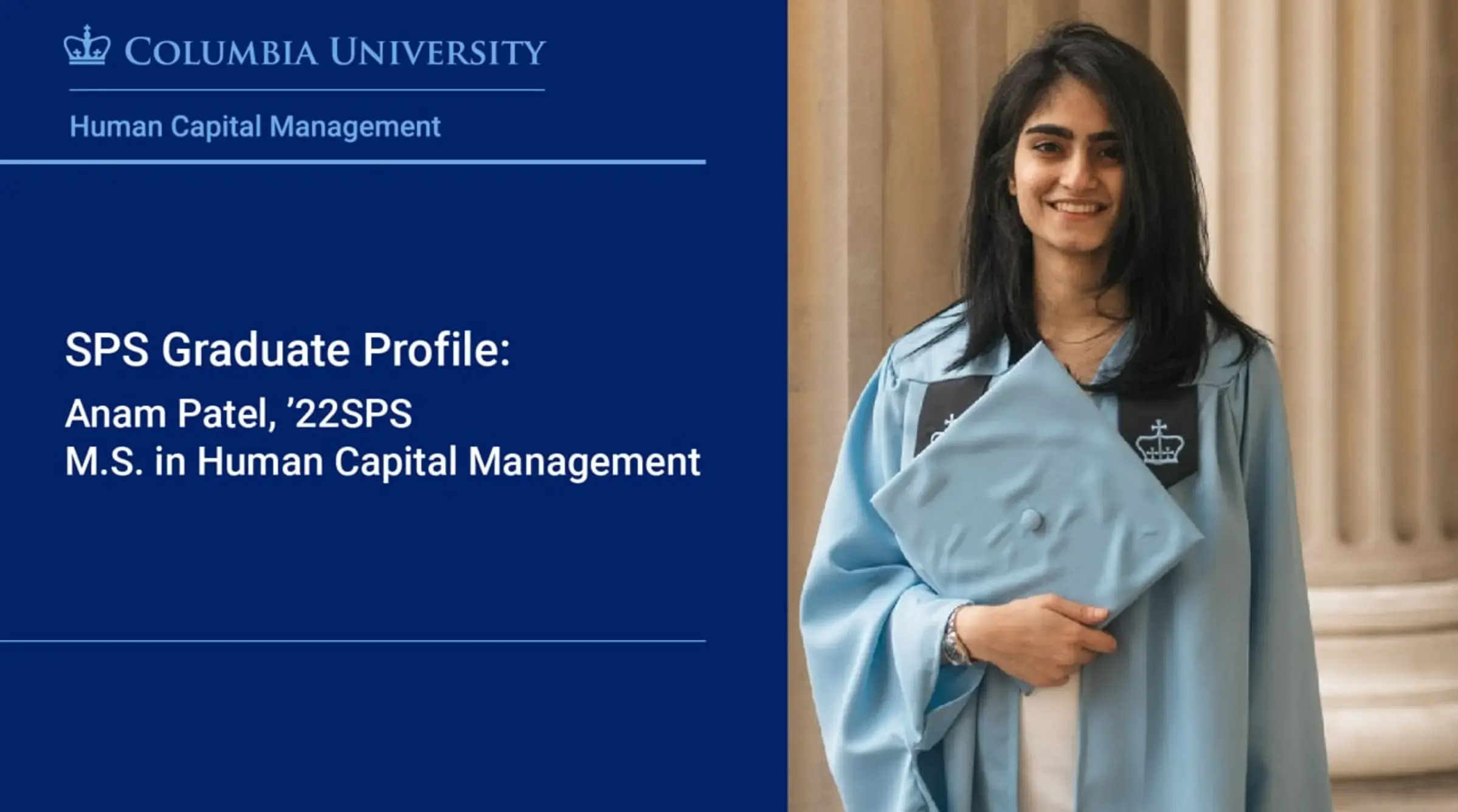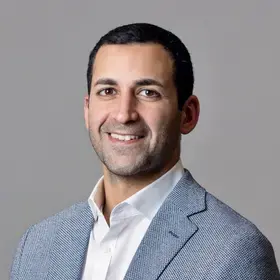With four years of experience in talent acquisition and recruitment, Anam Patel has met countless professionals. But one stood out. Anam was impressed by a job candidate who was soon to graduate from the M.S. in Human Capital Management program at Columbia University.
When the time came to get an advanced degree herself, Anam remembered that student and applied to Columbia. She soon moved from Hyderabad, India, to New York City to earn the degree full-time on campus. “I thought being a part of a cohort in person would add more to my experience,” she says. Anam graduated in August and as of November, became an associate consultant of compensation at Mercer.
We talked with Anam about her journey at Columbia, which included a crash course in networking and an internship at Hitachi Energy. Edited excerpts are below.
What interested you about Columbia’s M.S. in Human Capital Management program?
When I started off working in HR, I was working on talent acquisition and résumé reviewing for three years. For some reason, the profiles from Columbia University stood out to me, specifically one from the Human Capital Management program. This complex and interesting program was exactly what I wanted for myself. After I realized that I wanted to expand my knowledge in HR and dive into deeper problems within the field, I decided on Columbia.
The faculty, both inside and outside the program, were extremely helpful. They respected what students said regardless of our professional backgrounds. They always integrated our experiences into what we were learning and helped us tie them together.
How important is building relationships in the field of human capital?
It’s extremely important both personally and professionally, especially in the HR sector, since it’s a people-oriented field. As an HR professional, you need to develop skills to be able to interact with people from different backgrounds, particularly when diversity, equity, and inclusion (DEI) is such a huge focus in the corporate world. Networking has helped me understand so much more about how culturally different people are and how practices are influenced by these differences at work and outside of work. It’s important for me to be able to cope with all these differences, find my balance at work, and interact with people in a way that they understand.
I struggled with managing my existing relationships initially, especially because they all came from my home country. But eventually, I was inspired by my peers who were balancing their existing and new relationships. So I started to learn and take a few tips from them. In a student cohort, it’s natural to actively build relationships; all you need is to talk to people and go with the flow.
Networking also helped me with my job search. When I learned that we were allowed to do an internship program, I reached out to everybody I knew, including faculty, my peers, and friends from other Columbia SPS programs. I shared my résumé, talked to people, went on coffee chats, and finally landed myself an internship.
Tell us about your recent internship.
What got me to Hitachi Energy was my experience in talent acquisition and the value that Columbia added to that. As a talent and learning intern, I work on people analytics, stakeholder management, and even benchmarking. During the internship, I’ve been able to refer to and incorporate everything I’ve learned in class and the workplace, and vice versa.
For example, Columbia’s HCM program taught me how to identify trends and areas for improvement within an organization in order to find solutions for the future. One of my very first projects was to conduct research needed to devise recruitment strategies for achieving gender parity in roles with disproportionately fewer women across the energy sector. It was a small exercise, but I was rewarded for being able to figure that out. I made a small observation that will hopefully make a big difference in the future.
What is your professional aspiration after Columbia?
I would like to work as an HR business partner or a consultant for a firm. And eventually, I'd like to get into the mergers-and-acquisitions side of HR.
What was your experience like as an international student?
This was a very different experience for me, because it was the first time I’d been outside my home country. When I first came here, I was a bit flustered and shy. But the faculty and peers were so welcoming despite different cultures and experiences. I blended in so well and thus felt like I fit right in with my own culture. I never had to pretend to be someone else.
What are your favorite things to do around New York City?
One thing I absolutely love about the city is how easy it is to get around to places compared to other cities. I love walking around and exploring new neighborhoods. And MTA makes it so easy for me to do it!
What’s Columbia SPS like outside the classroom?
SPS had a lot of events that I really enjoyed. One of my favorites was the bowling event held at Times Square. I met so many people outside of the program. I also enjoyed one of the HCM events before graduation where I met people from the previous cohorts who work in the real world. It was nice to understand and learn how they navigated after the program ended.
Columbia University’s M.S. in Human Capital Management program prepares graduates to be world-class HCM strategists able to address changing needs in building and motivating talented, engaged workforces in the private, public, academic, and not-for-profit sectors. The program is available part-time, full-time, on campus, and online. Applications are open for fall 2023 enrollment.



